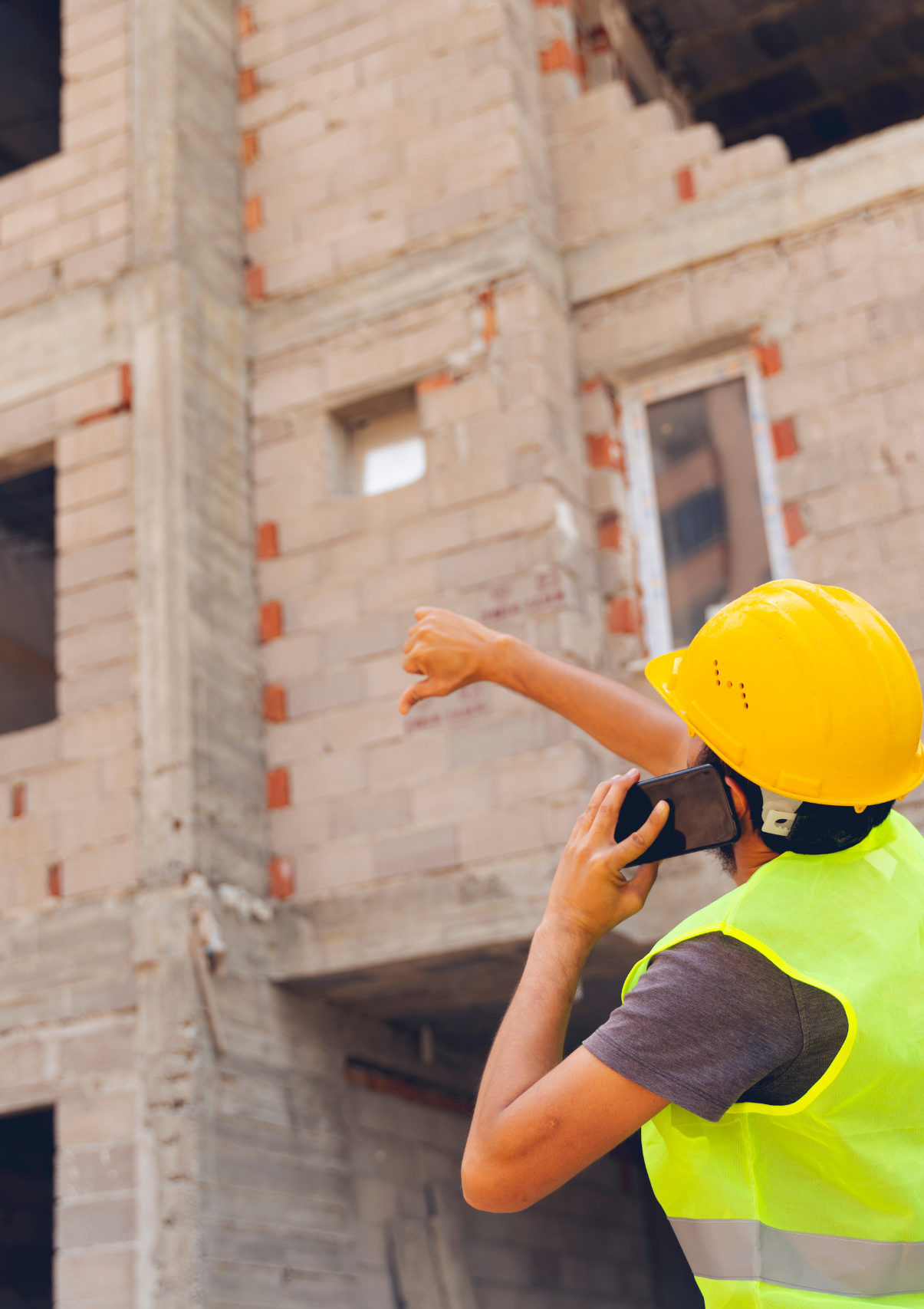Florida’s Construction Defect Statute Chapter 558
“Alan Gustafson is fantastic. Not only did he help me through a residential construction, I made a new friend. He is fair, honest, and wise beyond his years. You will thank yourself for having Herman & Wells represent you!”
Scott K
Contact us for a free case evaluation
By submitting my data I agree to be contacted
TABLE OF CONTENTS
- HISTORICAL OVERVIEW OF CHAPTER 558
- RECENT AMENDMENTS TO CHAPTER 558
- UNDERSTANDING CONSTRUCTION DEFECTS
- THE CHAPTER 558 PROCESS: A STEP-BY-STEP GUIDE
- PROACTIVE QUALITY CONTROL MEASURES
- REDUCING EXPOSURE TO DEFECT CLAIMS POST-CONSTRUCTION
- UPCOMING PROPOSED CHANGES TO CHAPTER 558
- CONTACT OUR FLORIDA CONSTRUCTION DEFECT LAWYERS
WHAT HAPPENED?
Are you a property owner in the state of Florida? If so, you must be aware that there are certain legal protections for your rights when it comes to construction defects. Under Florida Statute Chapter 558, homeowners have the right to bring forth a claim against contractors or builders who fail to perform their contractual duties according to reasonable industry standards.
It is essential for all Florida homeowners, condo owners, and business owners with contracting concerns to become educated about this law and understand how it will affect your potential claims—and more importantly, what recourse is available should those claims be unsuccessful. Keep reading as we explain everything you need to know about Florida’s Construction Defect Statute Chapter 558!
THE CLIFF NOTES
Get the key takeaways from this page
THE CLIFF NOTES
Get the key takeaways from this page

- Familiarize yourself with Chapter 558, the Florida construction defect statute.
- Subcontractors may be asked to inspect, repair or contribute to a financial settlement in case of a defect.
- If an agreement cannot not be reached within the 60-day window, property owners can proceed with filing a lawsuit.
- Proactive quality control measures such as thorough document reviews, specific inspection protocols and post-remedial inspections can help catch any issues that may have arisen during the resolution process.
- Providing operations and maintenance manuals, documenting project closeouts, and conducting post-completion inspections can protect against future defect claims.
- Keep up to date with proposed changes to Chapter 558 as they could have an impact on current or future projects.
- If you need legal guidance on Florida’s construction defect laws, contact our knowledgeable and experienced team of construction law attorneys for a free initial consultation.
HISTORICAL OVERVIEW OF CHAPTER 558
Florida’s Construction Defect Statute, also known as Chapter 558, was created in 1996 to protect the rights of property owners and give them clear legal guidance when dealing with construction defects. This law provides a set of criteria that must be met for a successful claim against contractors or builders who fail to meet industry standards.
RECENT AMENDMENTS TO CHAPTER 558
In 2021, the Florida Legislature made a number of changes to Chapter 558 that are now in effect. Most notably, they shortened the statute of repose from 10 years to 7 years for residential homes and townhomes. This allows homeowners to bring forth claims against contractors or builders within seven years of the completion date of their project.
Furthermore, the updated statute also includes provisions for model homes and clarified language for townhomes and condominiums. In addition, the amendments clarify which events trigger the statute of limitations and repose, ensuring that homeowners are aware of their rights under this law and providing them with more effective legal recourse.
UNDERSTANDING CONSTRUCTION DEFECTS
Before we discuss the specifics of Chapter 558, it is important to understand what qualifies as a construction defect under this law. According to Section 558.002(5), F.S., a construction defect is defined as “any deficiency in the design, specifications, surveying, planning, supervision or observation of construction or preparation of construction plans and any resulting defect in the completed project that materially impairs the use, value, or safety of the project.”
Examples of construction defects include defective materials (check out our page on stucco defects for more context), code violations (check out our page about roof defects for common examples), and deviations from professional standards that result in a flawed structure or impaired use of a building. It is important to note that not all issues related to construction are considered defects. For example, if a contractor fails to abide by all contractual agreements, this in itself does not constitute a construction defect.
THE CHAPTER 558 PROCESS: A STEP-BY-STEP GUIDE
Step 1: Initiating With A Notice Of Claim
The Chapter 558 process begins with a notice of claim. The property owner must provide the contractor with written notification of the alleged construction defects. This notice allows the contractor to be aware of the claim and conduct an inspection if necessary.
Step 2: The 60-Day Resolution Window
Upon receipt of the notice, the contractor has 60 days to respond. Within this time frame, the contractor can offer to fix the defect, negotiate a settlement, or deny the claim altogether. This 60-day window is a critical juncture in the Chapter 558 process, offering an opportunity for resolution without court intervention.
Step 3: Contractor’s Responsibilities And Response Options
The contractor has a significant role in the 558 process. They must assess the merit of the claim, possibly engaging expert consultants or subcontractors. The contractor’s response could involve offering to repair the defect, proposing a monetary settlement, or disputing the claim. The goal is to deal with the issue promptly and professionally to avoid potential litigation.
Step 4: The Role of Subcontractors in the Process
Subcontractors can be brought into the process by the contractor. They may be asked to inspect the defect, participate in repairs, or contribute to a financial settlement. As participants in the construction project, subcontractors share the responsibility for any identified defects.

Step 5: Potential Outcomes And Next Steps If No Agreement Is Reached
If the parties cannot reach an agreement within the 60-day resolution window, the property owner may proceed with filing a lawsuit. It’s important to note that the failure to agree during the 558 process does not preclude the possibility of resolution—it merely signals the end of this particular method of resolution. Before entering into litigation, it’s recommended to seek advice from a legal professional experienced in Florida’s construction law.
PROACTIVE QUALITY CONTROL MEASURES
In addition to familiarizing yourself with Chapter 558, there are proactive measures you can take to ensure the quality of your construction project.
PROACTIVE QUALITY CONTROL MEASURES
In addition to familiarizing yourself with Chapter 558, there are proactive measures you can take to ensure the quality of your construction project.
As we’ve mentioned before, thorough contract document reviews and specific inspection protocols are essential for preventing defects from occurring in the first place.
It is also important to track corrective work and perform post-remedial inspections once repairs are completed. By documenting the conditions of corrected defect areas and comparing them with standards for acceptable work, you can catch any issues that may have arisen during the resolution process. Taking these proactive steps to maintain quality control can help protect your project from liability and ensure a smooth construction experience overall.
When it comes to resolving construction defects, prevention is always better than cure. By understanding Florida’s Construction Defect Statute, Chapter 558, and taking proactive steps to ensure quality control, you can protect your rights as a property owner and remain in compliance with Florida law.
REDUCING EXPOSURE TO DEFECT CLAIMS POST-CONSTRUCTION
Once your project has been completed, it is just as important to protect against potential defect claims in the future. One of the best ways to do this is by providing operations and maintenance manuals. These documents provide detailed instructions on how to maintain and operate the building correctly.
In addition, it is also good practice to document the conditions at project closeout. This includes a detailed inspection report, photographs of the completed work, and any other relevant documentation. Having this information on hand can help resolve disputes related to the quality of the work and protect against potential claims down the line.
Finally, conducting post-completion inspections is another way to reduce exposure to defect claims after project completion. During these inspections, you should look for any issues or code violations that may have gone unnoticed during the initial construction process. Keeping your projects up to date with building codes and regulations can help minimize your risk of future claims.
UPCOMING PROPOSED CHANGES TO CHAPTER 558
In recent years, Florida’s legislature has proposed changes to Chapter 558 in order to make the pre-suit process more effective. One of these changes is an emphasis on exhausting warranty claims before sending a notice of claim. This is intended to encourage vendors and contractors to work together to resolve disputes without resorting to litigation.
Other proposed changes include providing additional time for contractors to respond to notices of claim and requiring expert consultants to be identified before the notice is sent. All of these changes are intended to streamline the Chapter 558 process and make it more efficient.
It’s important to keep up with any developments in Florida’s construction law, as they could have an impact on your current or future projects. By understanding the pre-suit process and staying informed on upcoming changes to Chapter 558, you can ensure that your construction projects remain in compliance.
CONTACT OUR FLORIDA CONSTRUCTION DEFECT LAWYERS
It is critical for property managers to stay informed on a regular basis regarding the updates and changes to Chapter 558. As the construction industry continues to evolve, so too do the laws that govern it. By understanding how the law affects your project, you can be better prepared for any legal issues that may arise.
If you need legal guidance on Florida’s construction defect laws, our experienced team of construction law attorneys is here to help. Our knowledgeable and dedicated legal professionals can provide the advice you need to protect your projects and investments.
Call (727) 821-3195 today for a free initial consultation. Together, we’ll ensure that you remain in compliance with Florida’s regulations and minimize your risk of facing costly claims related to construction defects. today!
CONTACT OUR FLORIDA CONSTRUCTION DEFECT LAWYERS
It is critical for property managers to stay informed on a regular basis regarding the updates and changes to Chapter 558. As the construction industry continues to evolve, so too do the laws that govern it. By understanding how the law affects your project, you can be better prepared for any legal issues that may arise.
If you need legal guidance on Florida’s construction defect laws, our experienced team of construction law attorneys is here to help. Our knowledgeable and dedicated legal professionals can provide the advice you need to protect your projects and investments.
Call (727) 821-3195 today for a free initial consultation. Together, we’ll ensure that you remain in compliance with Florida’s regulations and minimize your risk of facing costly claims related to construction defects. today!
By submitting my data I agree to be contacted

